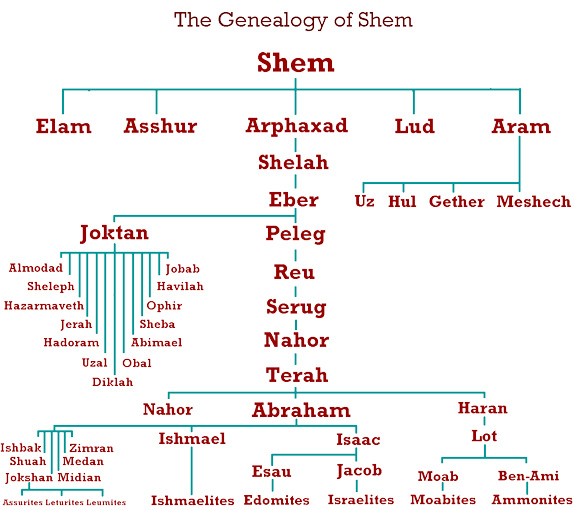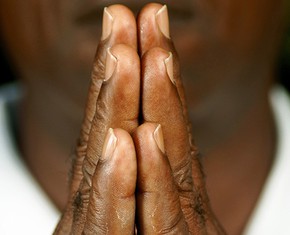The views expressed in our content reflect individual perspectives and do not represent the authoritative views of the Baha'i Faith.
Most people think of the Semitic religions – Judaism, Christianity, and Islam — as very different religions. But could they be progressive revelations of a single religion? Of course it makes sense to speak about Judaism, Christianity, and Islam as separate religions as they have unique histories, practices, and leaders, but are they part of a single process as Baha’is claim?
From a scriptural perspective, Semitic people are descendants of Shem, a son of Noah. Noah’s line leads to Abraham and from the descendants of Abraham Judaism, Christianity, Islam, and the Baha’i Faith all took root.
The scriptures of all these religions introduce us to great spiritual messengers, law-givers and personalities known as prophets. It is impossible to list all the Semitic prophets, as most are lost in time. In one prominent book, Baha’u’llah mentions several including: Adam, Noah, Hud, Salih, Abraham, Moses, Christ, and Muhammad. The Qur’an, which Baha’is accept as the Revealed Word of God, includes all of these prophets, as well. The Qur’an also mentions a number of other prophets, including Lot and Shu’aib — but the Qur’an makes it clear that any list of prophets is partial.
 While no complete list of Semitic prophets is possible, the fact that the Books of the Semitic religions consciously build upon one another is testimony to the essential oneness of these great Faiths. Christians accept that God worked through the Jews before the time of Christ. Muslims accept that God worked through both Christians and Jews before the time of Muhammad. Of course, members of older religions tend to question the truth of the religions that follow theirs. But this rejection is often based on the mistreatment or arrogance experienced by members of one religion by members or clergy of another, not on a careful review of the claims of the newer religion. It is also true there are prophetic cycles within prophetic cycles so that when a new religion comes, some prophecies are not fulfilled, these being left to a future religion.
While no complete list of Semitic prophets is possible, the fact that the Books of the Semitic religions consciously build upon one another is testimony to the essential oneness of these great Faiths. Christians accept that God worked through the Jews before the time of Christ. Muslims accept that God worked through both Christians and Jews before the time of Muhammad. Of course, members of older religions tend to question the truth of the religions that follow theirs. But this rejection is often based on the mistreatment or arrogance experienced by members of one religion by members or clergy of another, not on a careful review of the claims of the newer religion. It is also true there are prophetic cycles within prophetic cycles so that when a new religion comes, some prophecies are not fulfilled, these being left to a future religion.
There are differences, however, in the theology and in some of the stories related in the Semitic religions. For example, in the Biblical account of the impending sacrifice of Abraham’s son, Issac is the intended sacrifice. In the Qur’an, it is Ishmael. Which is correct? Symbolically, both versions are correct. If Isaac represents Judaism and Ishmael represents Islam, then at one time God chose Israel as His sacrifice, at another it was Islam. Similarly, in the Bible Adam is the first created man. In the Qur’an He was God’s first prophet. But couldn’t the first created man also be a prophet after leaving the garden?
The Semitic religions of Judaism, Christianity, and Islam occupy a prominent and honored role in the Baha’i teachings. Most of the early followers of the Baha’i Faith came from these religions, and consequently the questions that were put to Baha’u’llah were often derived from the religious concerns of these people.
Further, Baha’u’llah had Semitic origins, though He also had Zoroastrian heritage. The Baha’i Writings address hundreds of pages to Semitic concerns, focusing on the essential unity of the Semitic Faiths. In this passage from the Baha’i teachings, Abdu’l-Baha talks directly about that unity:
Consider how Jesus Christ united the divergent peoples, sects and denominations of the early days. It is evident that the fundamentals of religion are intended to unify and bind together; their purpose is universal, everlasting peace. Prior to the time of Jesus Christ the Word of God had unified opposite types and conflicting elements of human society; and since His appearance the divine Teachers of the primal principles of the law of God have all intended this universal outcome. In Persia Baha’u’llah was able to unite people of varying thought, creed and denomination. The inhabitants of that country were Christians, Muslims, Jews, Zoroastrians and a great variety of subdivided forms and beliefs together with racial distinctions such as Semitic, Arabic, Persian, Turk, etc.; but through the power and efficacy of religion Baha’u’llah united these differing peoples and caused them to consort together in perfect agreement. Such unity and accord became manifest among them that they were considered as one people and one kind….
The central purpose of the divine religions is the establishment of peace and unity among mankind. Their reality is one; therefore, their accomplishment is one and universal — whether it be through the essential or material ordinances of God. There is but one light of the material sun, one ocean, one rain, one atmosphere. Similarly, in the spiritual world there is one divine reality forming the center and altruistic basis for peace and reconciliation among various and conflicting nations and peoples. – The Promulgation of Universal Peace, pp. 97-98.
















Comments
Sign in or create an account
Continue with Googleor